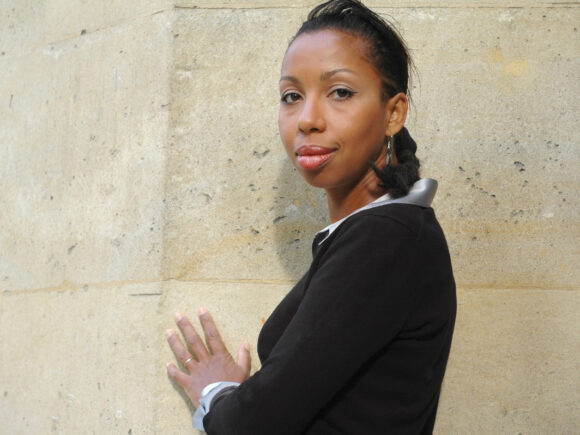Haitian Creole became an official language in 1987 and is spoken by everyone in the population. Unfortunately, there is linguistic discrimination against those who speak Haitian Creole, making the use of the French language the preferred choice. Speaking French is a sign of education and some Haitians will sometimes judge other Haitians whenever they speak French. There is a widely known proverb in Haitian Creole that goes “Pale franse pa di lespri pou sa” which literally means “to speak French does not mean that you have wisdom.” The proverb evokes that it is not because a person is school-educated that he is necessarily intelligent. Back in the day, a lot of private schools in Haiti used to forbid the use of Haitian Creole. Thankfully, over time, Haitian Creole became a subject taught in many private schools alongside other languages like Spanish, English, and Latin. However, Haitian Creole is the main language spoken in public schools.
About 75% of Haitian Creole originates from French. The main difference is the grammar (verbs do not conjugate in Haitian Creole) and the pronunciation (every word is written as it sounds). Although many words share the same pronunciation, others have different meanings. For example, the word fréquent has the same definition in French, however, in Haitian Creole, frekan translates to being rude and disrespectful. Another word is ménage, which in French means household, however, in Haitian Creole, menaj is a lover. So be careful next time when practicing these polyglot skills!
Below is a little glossary of Haitian Creole vocabulary pour célébrer la nouvelle année en français et en créole !

As you can see, there is a strong resemblance between French and Haitian Creole, but the latter is written just how you would pronounce it. In Haitian Creole, there are 32 alphabet symbols and they are “⟨a⟩, ⟨an⟩, ⟨b⟩, ⟨ch⟩, ⟨d⟩, ⟨e⟩, ⟨è⟩, ⟨en⟩, ⟨f⟩, ⟨g⟩, ⟨h⟩, ⟨i⟩, ⟨j⟩, ⟨k⟩, ⟨l⟩, ⟨m⟩, ⟨n⟩, ⟨ng⟩, ⟨o⟩, ⟨ò⟩, ⟨on⟩, ⟨ou⟩, ⟨oun⟩, ⟨p⟩, ⟨r⟩, ⟨s⟩, ⟨t⟩, ⟨ui⟩, ⟨v⟩, ⟨w⟩, ⟨y⟩, and ⟨z⟩.” There is no letter ⟨c⟩, ⟨u⟩, ⟨q⟩, ⟨x⟩. Every letter is important and there are no silent ones.
If you’re interested in learning Haitian Creole, I will be right here at the reception desk. However, if you would like to learn one language at a time, starting with French, you are just in time to enroll in our Fall session. For all new students, remember to take our free placement test, which is an online written test followed by a conversation with one of our teachers. This ensures that you are placed in the appropriate course level. Then, you will be ready to immerse yourself in the beautiful world of French learning. We offer kids, teens, and adults classes. Classes are filling up quickly, so don’t wait! Enjoy our 10% Early Bird Discount until September 1st.
We also invite all French speakers, Francophiles, and French-at-heart to join us for our annual Open House on Thursday, September 7. Get a taste of our exciting offerings, take a sneak peek at the fall season, and meet like-minded people. We look forward to welcoming you to the French Library.
Vive la rentrée !

Carmaïssa Etienne
Receptionist
Born and raised in Haiti, Carmaïssa moved to the United States at the age of thirteen years old. With her ability to adapt and learn quickly, being trilingual became an advantage. However, over the years, she noticed that her fluency in French had lessened due to the lack of use. Working at the French Library is the epitome of the blessing that she was looking for to regain fluency in her native language. It has also opened countless doors of opportunities for her to connect with people from all over the world about their love for French culture and language. In her free time, she enjoys reading, writing novels, journaling her thoughts, and having deep conversations with loved ones.






